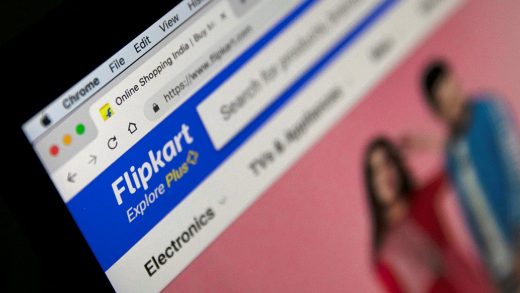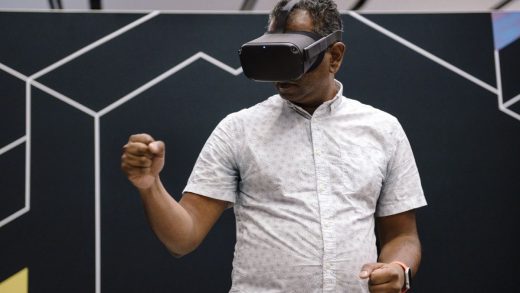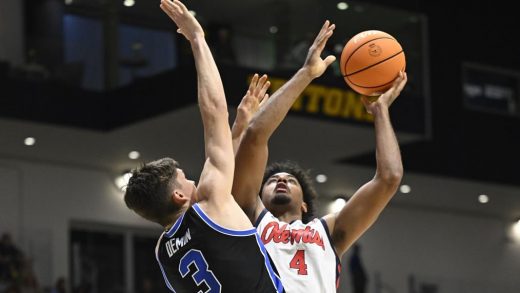:format(webp)/https://www.thestar.com/content/dam/thestar/entertainment/2023/05/28/as-an-actor-ive-played-queer-characters-on-tv-longer-than-ive-been-out-and-tv-was-no-help-in-finding-myself/niamh_in_grease.jpg)
“It’s getting to the point where I’m like, does casting know something I don’t?” I say to my mum after getting an audition for yet another lesbian character. This was a running joke in my family from about age 16, as almost every audition I’d had for a queer or lesbian-identifying character resulted in a booking.
Huge shocker to everyone; casting did in fact know something that I did not.
I’ve been playing queer characters for about 10 years — half of my career and six years longer than I’ve been out. I might have recognized my queerness earlier if I had actually resonated with the queer storylines I saw on TV; not to mention, how immensely difficult it is to form a personal identity outside of your career when you grow up as a child actor.
There is an ideology that heterosexuality is the default factory setting in our society. Essentially that you’re straight until proven gay and when you’re gay, you’re just gay, unless you’re bisexual — and then you’re either a gluttonous attention-seeking harlot or not yet ready to commit to just being gay.
Growing up, I never really saw media that told me otherwise; that portrayed all of the ways to lie outside of the binary of straight or gay, man or woman; stories that showed all of the in-betweens of human attraction, identity and existence. I didn’t have any references to describe who I was because I didn’t fit in with either of the clear-cut options. In retrospect, it’s not surprising that I was drawn to queer-coded characters like Jo March, Carrie and Li Shang (Mulan’s male soldier alter ego).
In my teens I was particularly engaged by films like “Juno” (2007) and “Whip It” (2009) that showcased complicated, nuanced and dynamic characters. Both films star Elliot Page.
In “Juno,” both Page and Michael Cera’s characters were young and fluid, still evolving as humans, and the cinematic relationship worked. In other films however, despite delivering incredible performances, I noticed a subtle romantic disconnect between Page and assorted love interests. I found myself completely unsurprised years later when he came out. The camera had picked up on something that wasn’t yet public consciousness. And in my own case, casting had picked up on something that I wasn’t yet conscious of.
Until recently, a lot of queer stories in mainstream media — when they did occur — were often broad and addressed the most obvious stereotypes. And of course, add the two-dimensional token gay or lesbian supporting characters, and exploitative queer-trauma storylines. There are notable exceptions, but it still feels like a period of transition in representation. Furthermore, as the most under-represented group in Hollywood, this problem is only exacerbated for visibly queer and transgender Black, Indigenous and people of colour.
What’s more, there has been a lack of queer performers just simply inhabiting space onscreen in a wide range of roles that aren’t limited by their sexual identity. Recent examples include Ariana DeBose in “West Side Story,” Emma D’Arcy in “House of the Dragon,” Keke Palmer in “Nope” and Colman Domingo in “Euphoria,” just to name an incredibly select few.
What I didn’t realize I was wanting as a teen was something or someone to tell me you don’t have to feel 100 per cent gay to know you’re not 100 per cent straight. You don’t have to feel like a boy to know you don’t completely feel like a girl.
Funnily enough, the representation I had been looking for came in a movie I actually got to be in. I often think of my experience playing Mouse in Keith Behrman’s “Giant Little Ones” (2018) and how instrumental it was in my own discovery of identity. Mouse’s line “all (queer) means is that you’re not straight” rang through my head for years. Mouse was so sure of herself and so comfortable with the fluidity of identity and attraction that she became a kind of internal mentor to me. Since I had to understand Mouse to play her, I started to understand more about my own self.
Acting has always been cathartic for me. I feel as though my time spent playing Jack in “Degrassi” gave me the queer high school relationship I never had in real life. Playing Lydia in “Grease: Rise of the Pink Ladies” allowed me to channel a very feminine side of myself that has never really fit comfortably in my day-to-day gender expression. Something about the safety net of the camera let me embrace Lydia’s panache and confidence. Each character I have played has taken a small piece of me and, in return, I have taken a small piece of each one of them.
When I was a teenager and just starting to develop my sense of identity in a meaningful way, I looked at all the pieces of characters I had been collecting since I was five, and I couldn’t tell where they ended and I began. I had no idea who I was or what I wanted outside of being an actor. Arguably, one could say no teenager knows who they are or what they want, but then most teenagers also haven’t been known by their job title or a fictional character’s name since they were children.
When you’ve been told since childhood the kinds of clothes to wear for work or that you can’t cut your hair the way you want because it needs to be versatile enough that casting can see you in any role, you quickly learn to suppress any urge to distinguish yourself as an individual. Without resolution, this leads to a deeply unfulfilling adult life trying to fill the gaps left in the incomplete puzzle that is your sense of self.
For me, as much as I tried to fill it with work and being an overachiever, it wasn’t until 2019 when I moved to L.A. — where I had no friends — that I was forced to sit with myself and explore what I might be missing. It wasn’t until a year later during lockdown that I along with many others realized the depth of the heteronormative roles we had been subconsciously performing every day. When there’s no audience left to watch, you stop performing. You have to just be with yourself.
Now, on the other side, I can confirm life feels a lot more fulfilling. My career has begun to mean more to me than just being what I’m good at or known for. The beautiful part of being an actor is that you have the privilege to become the representation in media that you wish you’d had. I’m fortunate that I get to inhabit space onscreen and that I get to create nuanced characters and stretch creatively.
I want my work to show that you can just be in so many different ways. Not having to subscribe to any specific parameters of who to love or how to behave. Queerness to me is everything that lies outside the infrastructure of heteronormativity, and it’s not like you have to take that same blueprint and just make it rainbow-coloured. Queerness is lighting that blueprint on fire and building a house that you feel comfortable in.
And I’m finally starting to feel like I’m building the house I’ve always wanted.
JOIN THE CONVERSATION
does not endorse these opinions.


